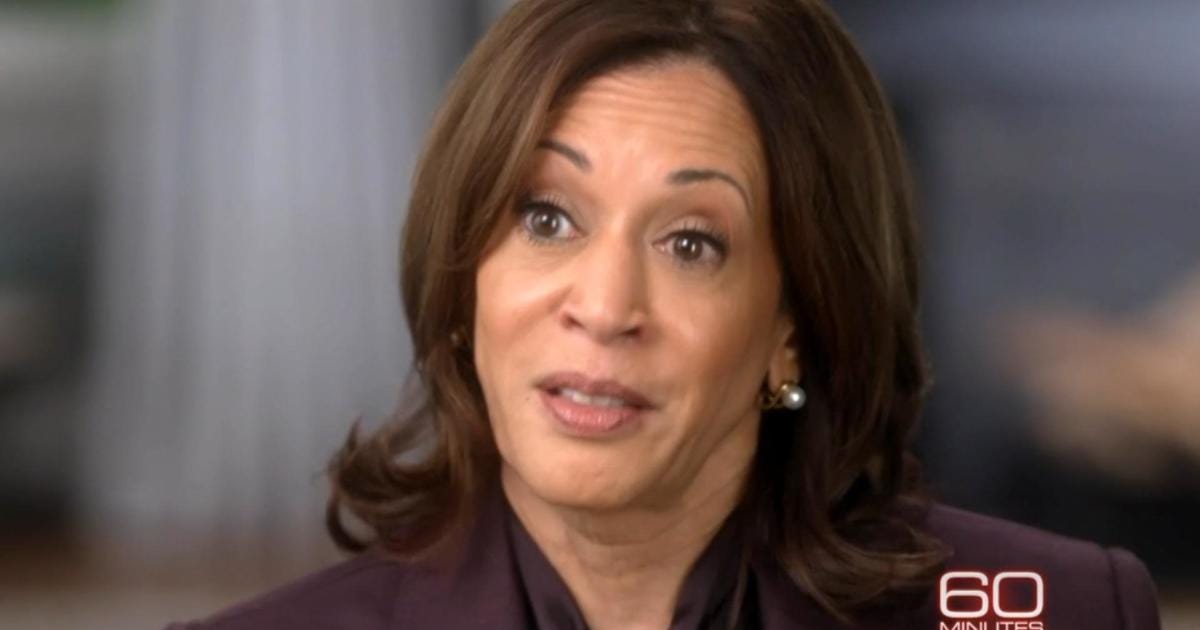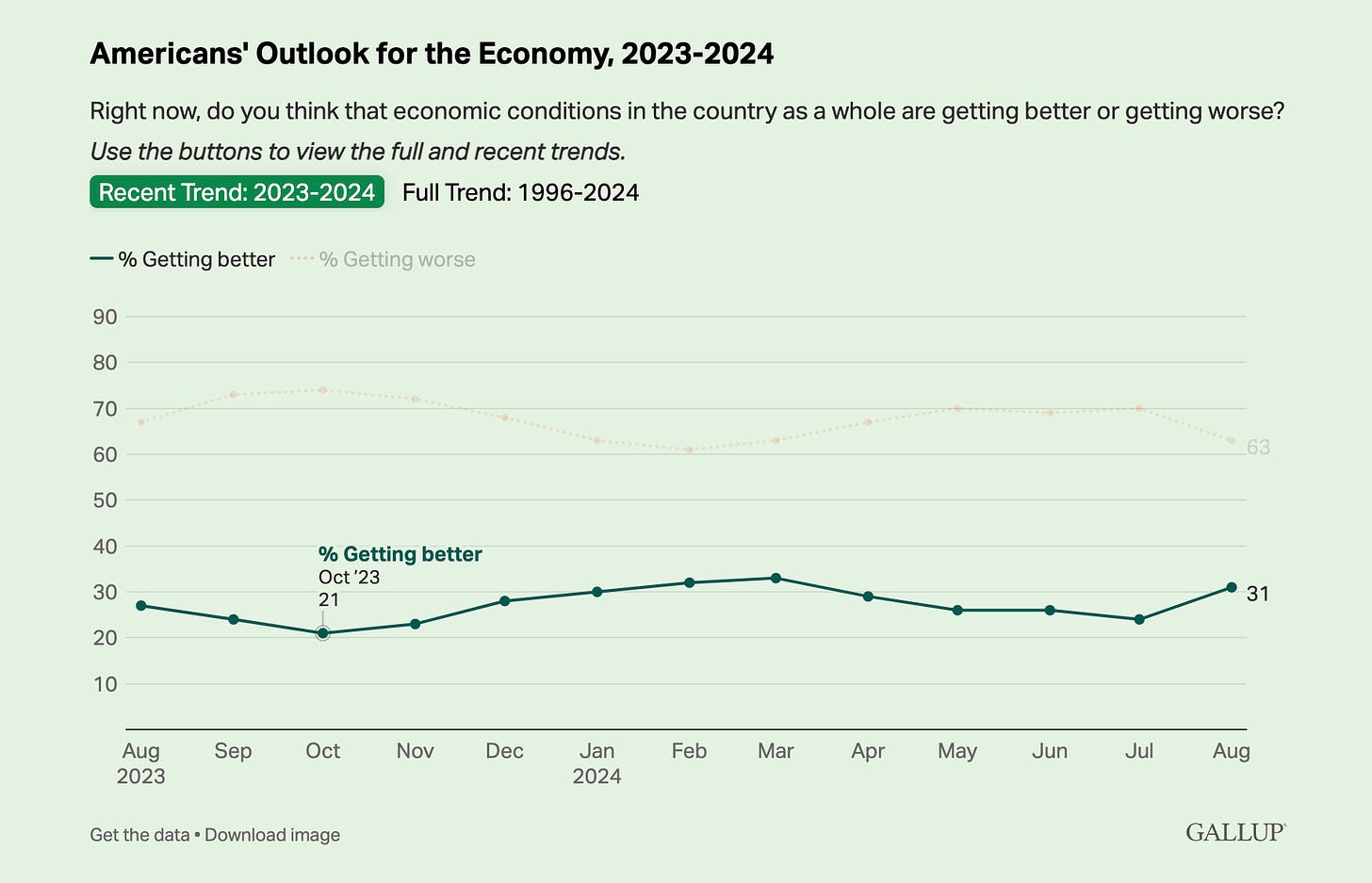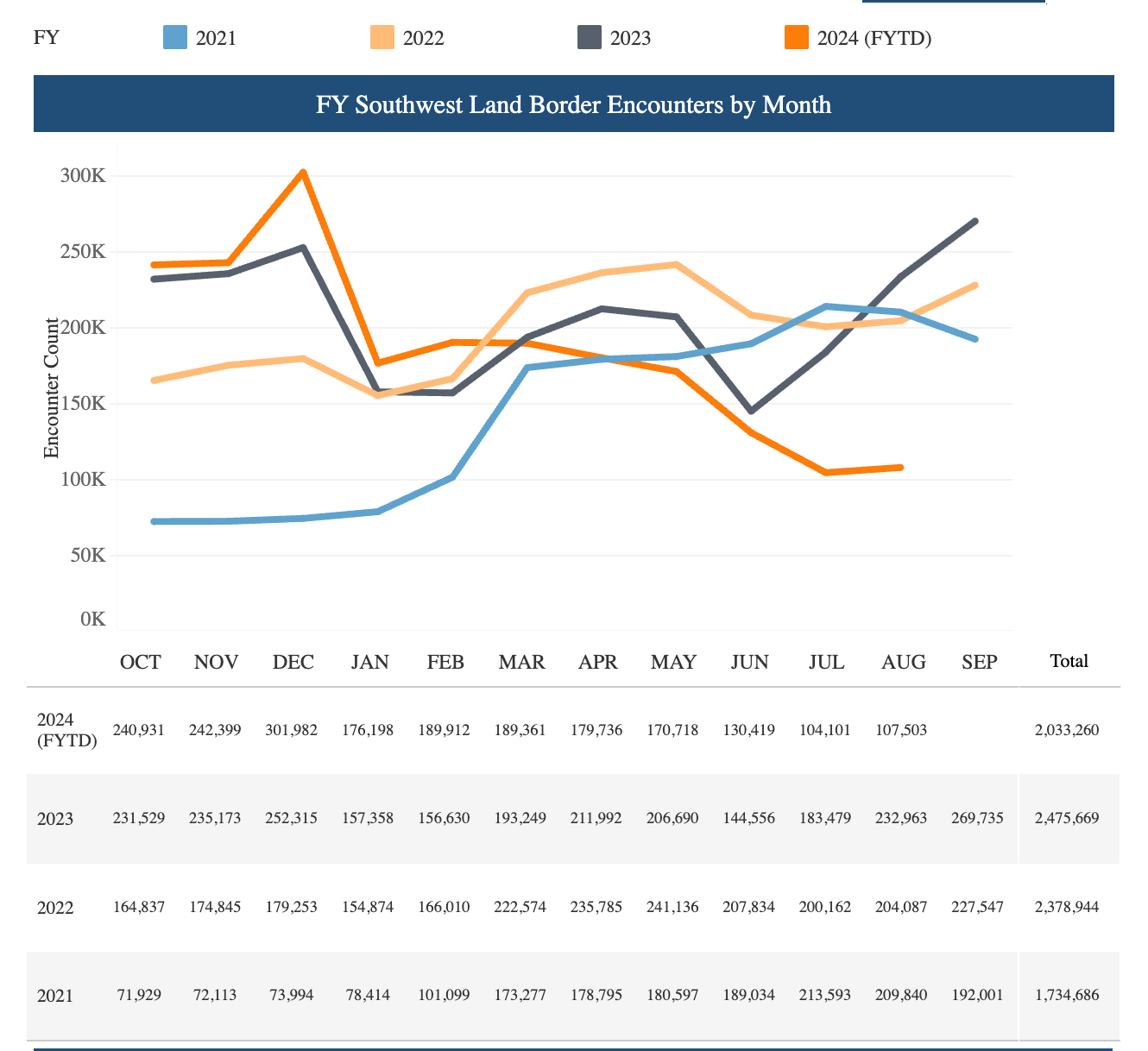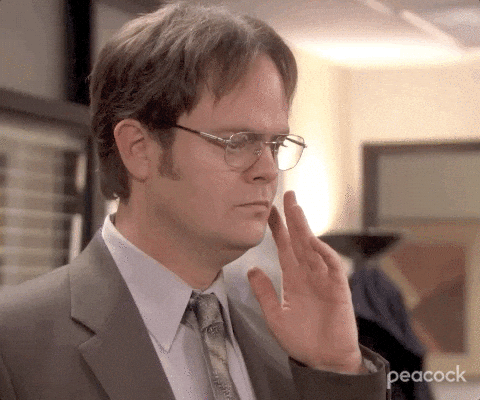Kamala Harris hasn’t sat for many tough interviews since she emerged as the Democratic presidential nominee. Or, honestly, many interviews at all.
But, on Monday night, Harris faced extended, tough questioning — via a sitdown she did with Bill Whitaker of “60 Minutes.” (Worth noting: Donald Trump had agreed to do a similar interview but backed out at the last minute.)
I went through the full transcript of the interview — line by line. You can find the lines you need to see below.
Normally these posts are for paid subscribers only. But I wanted everyone to see what I am doing here — and why it’s important.
If you value this sort of journalism, you’re in luck. I’m currently running a FLASH 48-hour sale — where an annual subscription that normally goes for $60 is only $50! Join us! 👇
To the lines!
“The work that we do diplomatically with the leadership of Israel is an ongoing pursuit around making clear our principles”
This is Harris’ response to Whitaker’s question as to why the Israel appears to not be listening to the Biden administration’s advice. It’s not a terrible answer in diplomatic terms but not a very good one in pure political terms. And away we go!
“We now have an economy that is thriving by all macroeconomic measures. And, to your point, prices are still too high.”
This typifies the delicate dance Harris has to do on the economy. Unemployment is down. More than 250,000 jobs were created last month. But she can’t take a victory lap because inflation remains high — and many people are pessimistic about the future of the economy.
“So the other economists that have reviewed my plan versus my opponent, and determined that my economic plan would strengthen America's economy. His would weaken it.”
Economists don’t really like major elements of either candidate’s plans.
“You know, when you talk quietly with a lot of folks in Congress, they know exactly what I'm talking about because their constituents know exactly what I'm talking about. Their constituents are those firefighters and teachers and nurses. Their constituents are middle class, hard-working folk.”
This may well be true. But if Republicans control either the House or Senate in 2025 — and I think it’s very likely they control one chamber — then a President Kamala Harris is going to have to compromise on her economic plans. Bigly.
“There are plenty of leaders in Congress who understand and know that the Trump tax cuts blew up our federal deficit.”
According to a 2018 Congressional Budget Office estimate, the Trump tax cut is projected to add $1.9 trillion to the deficits over 11 years.
“This is an election for president of the United States.”
Fact check: True.
“I believe in building consensus. We are a diverse people, geographically, regionally, in terms of where we are in our backgrounds. And what the American people do want is that we have leaders who can build consensus. Where we can figure out compromise and understand it's not a bad thing, as long as you don't compromise your values, to find common-sense solutions.”
This is Harris’ answer to the question of why she has changed positions on so many issues since 2019. It’s not perfect but it’s WAY better than her previous default answer: “My values have not changed.” That answer never made any sense to me.
“It's a longstanding problem. And solutions are at hand. And from day one, literally, we have been offering solutions.”
The question was why illegal border crossing quadrupled during the Biden administration. And this is not a great answer. Yes, it is a longstanding problem. But that doesn’t mean people don’t expect her to solve it.
“And the numbers today, because of what we have done, we have cut the flow of illegal immigration by half.”
This is true — per stats from U.S. Customs and Border Protection.
“I believe that the people of America want a leader who is not trying to divide us and demean. I believe that the American people recognize that the true measure of the strength of a leader is not based on who you beat down, it's based on who you lift up.”
Harris didn’t answer the question she was asked here — and I really wish she had because I think it would have been illuminating. The question Whitaker asked was this: “With so many people supporting Donald Trump, a man you've called a racist, how do you bridge that seemingly unbridgeable gap?”
“Not bilaterally without Ukraine, no. Ukraine must have a say in the future of Ukraine.”
Here Harris rejects the idea of meeting one-on-one with Russian President Vladimir Putin. Pretty remarkable given what we now know about Donald Trump’s close relationship with Putin.
“I have a Glock. And I have had it for quite some time. And, I mean, look, Bill, my background is in law enforcement. And so there you go.”
This seems to me a very good answer by Harris. And one that will likely surprise lots of people — including me!
“If he is not going to give your viewers the ability to have a meaningful, thoughtful conversation question and answer with you, then watch his rallies. You're going to hear conversations that are about himself and all of his personal grievances.”
Yeah, this feels like a good place to end.








The question about racism laid the blame on Kamala Harris instead of on Donald Trump himself. Donald Trump was not "called a racist," he IS a racist. He has always been a racist, from his landlor policies of refusing to rent to people of color right up to to when he accused Barack Obama of "being born in Africa," a versiuon of "go back to where you came from."
Trump uses racism to gin up his base and get them fearing dark-skinned people crawling through their windows and taking their shit, getting their jobs through DEI. marrying their daughters..
The way that that question was phrased was crap. Harrisis correct in labeling Trump a racist, and there is plenty of documented proof to back her up. It's not libel if it's true.
So why do people support him despite his racism?The answer is unpleasant to consider because many people are racist, though they will often get defensive when this is called out. Again, the statistics back this up, from the disproportionate number of black people are in prison versus their percentage in the population. Statistics also show how much more often black drivers are stopped by cops in traffic (which John Oliver addressed this week).
There was a lockstep reaction to BLM protests that lumped peaceful and violent actions into the same pot The coercion of the "defund police" message was included in this, and the movement was abandoned. Not only that, it isn't even possible to teach America's actual racist history in many states.
Harris is entitled to call that out for what it is: systemic racism at every level. She also knows all about misogyny (which perhaps is even more pervasive), but that's a topic for another day.
“Harris hasn’t sat for many tough interviews…”. And how many tough interviews has Trump sat for?